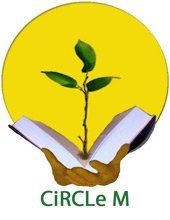Studying How the Sacred Touches Our Lives
When colleagues and friends honoured me recently and helped me celebrate the granting of a Doctor of Divinity Degree from St. Andrew’s Theological College (University of Saskatchewan), others asked “What does a Doctor of Divinity University Degree mean?”
Furthermore, when a very astute newspaper reporter questioned my explanation that “Divinity” was one of the basic studies of the Sciences that are at the heart of University Education … I knew I had to try to find the words to explain what the recognition of my new status implied.
It’s not hard to name studies in Physics, Engineering, Medicine or even Literature to be a “Science”. We understand, as an example, a “Doctorate in Agricultural Science” is about very focused studies in Agriculture.
But what of “Theology” – defined as “the systematic study of the nature of the divine” … the study of “the spiritual”? The question is, what does this academic discipline mean? And how is it possible that people of various religious persuasions really can study spiritual matters together, even though they usually end up with a variety of different conclusions?
Theology is not just about studying Scripture … or learning the history of a religion … or the different ways we interpret ethics and morality … It is not just about how a Rabbi or an Imam or an Aboriginal Elder may lead discussions with students … It has to do with all of these things and so much more!
Some Colleges focus on Biblically-based Christian theology. There are also Schools of Islamic Theology, Jewish Theology, etc. All of them have to do with “the study of God”. In today’s Global World many of us now enjoy making opportunity to dialogue with each-other and thus learn with and from each other.
As we study “Theology”, it is important for us to consider the key relationships we share: with the Divine, with Nature and with other human beings. Someone once reminded us it is as if we are connected with Mother Nature by her umbilical-cord!
Furthermore, it is important to acknowledge that “lay people” (as well as “professionals”) regularly give consideration to theologically related matters. If you have experienced birthing or dying, suffering or joy, planting or harvesting, feelings of despair or elation, emptiness or fulfilment … you have been touched by these theological ways of thinking … and doing … and being! These values are part of who we see ourselves to be.
In addition, as with the study of any of the other Sciences, the Study of Theology isn’t so much about “finding answers” as it is about “learning to ask pertinent questions” … The purpose of these studies is “to learn more about what we don’t know”.
The doubts that haunt us and the mysteries that entice us … Doctor of Divinity studies challenge us to reach out even more as we think about the many ways “the sacred touches our lives”.
The title “Reverend Doctor” doesn’t make me “more divine”, but it does challenge me to find delight in moving further into “the beyond”.
As a member of the United Church of Canada, I am reminded of the Creedal statement which my theological understanding affirms ...
“In life, in death, in life beyond death we are not alone.
Thanks be to God.”
s
